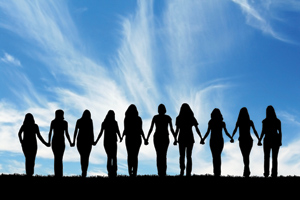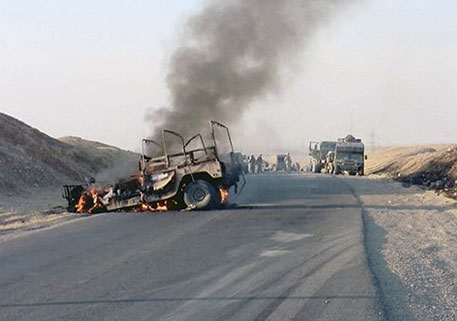 In April, House Veterans’ Affairs Committee Chairman Mark Takano—who took the reins of the committee at the start of the 116th Congress—announced the establishment of a women veterans task force, to be led by Rep. Julia Brownley, in an effort to help identify and eliminate difficulties women veterans face accessing benefits, programs and services.
In April, House Veterans’ Affairs Committee Chairman Mark Takano—who took the reins of the committee at the start of the 116th Congress—announced the establishment of a women veterans task force, to be led by Rep. Julia Brownley, in an effort to help identify and eliminate difficulties women veterans face accessing benefits, programs and services.
“Women have served our nation in uniform since its earliest days, yet for far too long, the contributions and distinct challenges facing the growing population of female veterans have been forgotten or ignored,” said Brownley. “My vision is for this task force to have a national presence and create a national dialogue where we can identify all of the inequities faced by women veterans and determine how we can tackle them through legislation and other means.”
“We’re excited by the announcement of the women veterans task force and are encouraged that the group will be examining long-standing cultural barriers that have negatively impacted women veterans’ access to care and benefits,” said National Legislative Director Joy Ilem. “This is an opportunity to better understand the perspectives, needs and preferences of women veterans, and we look forward to positive changes.”
Currently, there are eight DAV-supported bills that have been introduced in this Congress aiming to make improvements in health care and services for women veterans.
Sen. Jon Tester, ranking member of the Senate Veterans’ Affairs Committee, introduced S. 514, the Deborah Sampson Act, with DAV’s strong support. This comprehensive, bipartisan measure, aimed at addressing gender disparities and improving and expanding VA programs and services for women veterans, is consistent with DAV Resolution 019.
The bill would permanently authorize counseling for veterans recently separated from military service and accompanying family members in group retreat settings, including women-exclusive settings. It would extend the number of days, from seven to 14, that the VA may cover the cost of care for newborns of women veterans. It would also increase staffing levels and training for women’s health providers and improve infrastructure to ensure women veterans privacy and safety in VA facilities.
DAV’s 2018 report Women Veterans: The Journey Ahead identified many of these gaps in VA programs for women and calls for equal access to benefits and comprehensive VA women’s health services that appropriately recognize and honor their military service and sacrifices.
“It’s very important we stay focused on women veterans issues and strive for an overall culture change at the VA,” said National Commander Dennis Nixon. “Women veterans are one of the fastest-growing populations, and we have to make sure we’re prepared to keep the promises we’ve made to all veterans.”
Learn more
Follow along with updates on this and other veterans legislation by signing up for DAV CAN (Commander’s Action Network) at DAVCAN.org.






